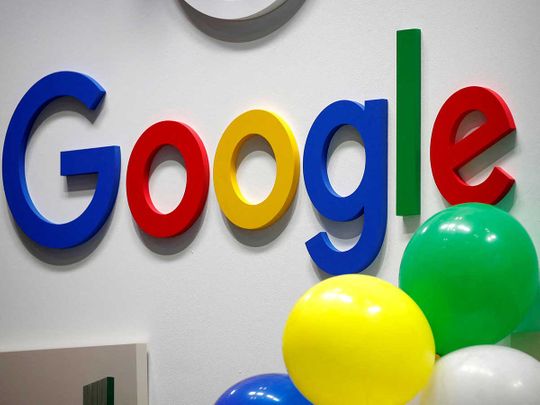
As the dominant force in online search, Alphabet's Google has for years had little to challenge its supremacy. But the rapid adoption of OpenAI's ChatGPT has some investors concerned that may be about to change.
While Alphabet has risen 20% this year amid a rebound in technology stocks, it's had several steep drops amid concerns that Google is at risk of losing clicks to Microsoft, which is incorporating ChatGPT into its Bing search engine.
On Monday, the shares fell as much as 4% on a report that Samsung Electronics has considered replacing Google with Bing as the default search engine on its devices. That followed a 12% decline over two days in February after a demonstration of Google's homegrown chatbot service Bard raised questions about its accuracy. On Thursday, Alphabet consolidated its artificial intelligence research groups into one unit, a move Chief Executive Officer Sundar Pichai said would accelerate the company's progress in AI.
Alphabet rose 0.6% on Friday.
With Google having nearly 85% of worldwide market share in internet search, according to Statista data, it has plenty to lose compared with Bing, whose share stands at 8.9%. Not only that, Alphabet gets a far greater share of revenue from online search and advertising than Microsoft.
"Even if Google in the new world gets 60%, ChatGPT gets 30% and everybody else gets crumbs of 10%, you go from 90% to 60%," said Michael Lippert, portfolio manager at the Baron Opportunity Fund.
The risk to Google's search business, which generated sales of more than $160 billion last year, prompted Lippert to reduce his exposure to Alphabet. "It's very hard to know exactly what the monetization will be," he said.
The prospect of a pricey battle for market share - especially amid an uncertain backdrop for the macro economy, to which the ad market is highly correlated - has the potential to weigh on sentiment.
"The best-case scenario for Alphabet is that it maintains its market share, and because it is already starting from a very strong position, it has a lot to lose," said Jim Awad, senior managing director at Clearstead Advisors.
Search is a huge deal for Alphabet. Last year, 57% of the company's revenue was derived from "Google Search & Other," according to data compiled by Bloomberg. For Microsoft, 5.8% of its 2022 revenue came from search advertising.
Still, analysts say it may be a while before AI technology becomes a meaningful driver of search-related revenue, and most view Alphabet as being well positioned for the long term despite early missteps.
"The perception surrounding AI has eclipsed the real near-term financial impact," said Stephen Lee, founding principal at Logan Capital Management. "AI isn't driving revenue yet, and it's too early to tell what things will look like over the longer term."
One factor in the stock's favor is its valuation. Alphabet trades at less than 18 times estimated earnings, making it the cheapest of the four largest technology and internet stocks, a group that also includes Apple and Amazon.com, in addition to Microsoft. Alphabet is trading below its 10-year average multiple and is the only one of the four priced at a discount to the Nasdaq 100.
For Lee, this is part of the stock's appeal.
"Alphabet isn't expensive by historical standards, and as investors, we like to invest in companies with good balance sheets and the ability to play through headwinds," he said. "Alphabet fits that category."






_resources1_16a30b3fb8b_small.jpg)




